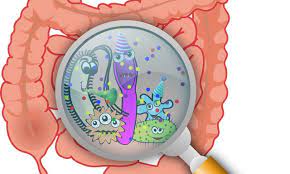
Breaking News
 America's Streets Are Filled With Poop, And Billions Of Gallons Of Untreated Wastewater...
America's Streets Are Filled With Poop, And Billions Of Gallons Of Untreated Wastewater...
 3 Million Pages of Child Sex Trafficking, So, What Is the FBI Doing?
3 Million Pages of Child Sex Trafficking, So, What Is the FBI Doing?
 Communists Once Again Suck At Hockey
Communists Once Again Suck At Hockey
 Grand Theft World Podcast 274 | Epstein Apocalypse with Guest Santos Bonacci
Grand Theft World Podcast 274 | Epstein Apocalypse with Guest Santos Bonacci
Top Tech News
 New Spray-on Powder Instantly Seals Life-Threatening Wounds in Battle or During Disasters
New Spray-on Powder Instantly Seals Life-Threatening Wounds in Battle or During Disasters
 AI-enhanced stethoscope excels at listening to our hearts
AI-enhanced stethoscope excels at listening to our hearts
 Flame-treated sunscreen keeps the zinc but cuts the smeary white look
Flame-treated sunscreen keeps the zinc but cuts the smeary white look
 Display hub adds three more screens powered through single USB port
Display hub adds three more screens powered through single USB port
 We Finally Know How Fast The Tesla Semi Will Charge: Very, Very Fast
We Finally Know How Fast The Tesla Semi Will Charge: Very, Very Fast
 Drone-launching underwater drone hitches a ride on ship and sub hulls
Drone-launching underwater drone hitches a ride on ship and sub hulls
 Humanoid Robots Get "Brains" As Dual-Use Fears Mount
Humanoid Robots Get "Brains" As Dual-Use Fears Mount
 SpaceX Authorized to Increase High Speed Internet Download Speeds 5X Through 2026
SpaceX Authorized to Increase High Speed Internet Download Speeds 5X Through 2026
 Space AI is the Key to the Technological Singularity
Space AI is the Key to the Technological Singularity
 Velocitor X-1 eVTOL could be beating the traffic in just a year
Velocitor X-1 eVTOL could be beating the traffic in just a year
Drugs can turn your gut microbiome against you – and even kill you

But increasing the quantity of a certain drug you're taking may lead to serious consequences, like in the case of the Parkinson's drug, levodopa (L-dopa).
Gut microbes and L-dopa
L-dopa is a replacement for dopamine commonly prescribed to patients with Parkinson's disease. Considered the most potent medication for the disease, this drug is meant to be converted in the brain into dopamine, the chemical involved in controlling movement. But the effects of L-dopa vary between patients, and human and animal studies have linked the discrepancy to microorganisms found in the human gut.
Each person has a unique composition of gut microbes. In some patients, L-dopa doesn't produce the desired results because certain microorganisms in their gut interfere with the drug's activity. These microbes break down L-dopa before it can reach the blood-brain barrier — the selective membrane that protects the brain from potentially harmful substances in the blood. This interference renders the drug ineffective.
In a recent study published in Science, researchers from Harvard University and the University of California, San Francisco finally put a name to these mysterious microbes. After screening gut bacterial genomes and conducting biochemical analyses, they identified Enterococcus faecalis and Eggerthella lenta as the two microbes that metabolize L-dopa in the gut.
The researchers found that E. faecalis produces an enzyme that converts L-dopa into dopamine, but an enzyme produced by E. lenta then transforms dopamine into m-tyramine. While the effects of this second conversion is still unclear, the researchers believe it may be linked to the side effects associated with L-dopa metabolism outside the brain.



